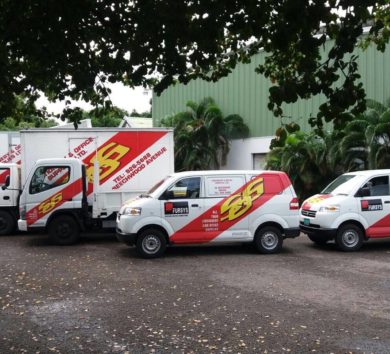

As Jamaica’s economy continues to grow, with record employment levels, renewed business optimism and strong consumer sentiment, many companies admit that they are struggling to find the right talent.
This growing mismatch between the skills employers need and those available in the workforce is a contradiction being dubbed by local experts as “the confidence dilemma.”
This paradox will take centre stage at the October 28, third-quarter release of the GK Capital Management (GK Capital)/Jamaica Chamber of Commerce’s (JCC) Business and Consumer Confidence Indices.
The forum will bring together leading voices in business, skills training, and academia – namely, Dr Kevin Brown, president of the University of Technology (UTech); Dr. Taneisha Ingleton, managing director of the HEART/NSTA Trust; and Steven Whittingham, CEO of GraceKennedy Financial Group and chairman of the Jamaica Stock Exchange, to examine how Jamaica can sustain its current growth amid mounting talent shortages.
Low unemployment rate, yet…
The event organisers say the tension between optimism and operational reality will be at the heart of the conversation, which comes at a pivotal moment for local competitiveness, given the obvious undercurrent that may impact local growth: an escalating skills gap.
“We have the optimism, the capital, and the entrepreneurial spirit,” said Tyshaun Lindo, head of business development at GK Capital Management, “But if we don’t align our strategic financial and talent pipeline with where businesses are going, we risk losing momentum when Jamaica is poised to surge. The confidence is there. The capacity is what we now must build for local and regional business growth,” he opined.
Data from the Statistical Institute of Jamaica (STATIN) indicate that the unemployment rate fell to 3.3 per cent in the second quarter of 2025, down from 3.7 per cent in the previous quarter, the lowest in Jamaica’s history. Total employment reached 1.44 million persons, while the labour force participation rate climbed to 69.3 per cent.
Still, the picture is not without warning signs.

STATIN data also shows a labour underutilisation rate of 6.7 per cent, indicating that thousands of Jamaicans remain underemployed or seeking more work hours. Youth unemployment stands at 10.2 per cent, and roughly one in four young people is classified as ‘Not in Employment, Education or Training’ (NEET), a persistent concern for policymakers.
At the same time, Jamaica’s overall Business and Consumer Confidence Indices continue to paint an upbeat picture. The Consumer Confidence Index reached a record 186.3 points in the second quarter, while Business Confidence held steady, reflecting cautious optimism across most industries.
Yet, despite that optimism, employers consistently cite skills shortages and hiring challenges as the most significant barrier to expansion.
“Members of the chamber, including my own business, have been finding that talent acquisition is getting more challenging each year. A rebalancing is needed in both the short and the long term to upgrade our existing workforce to meet the needs of our businesses. This will require a partnership between the public and private sectors working towards this common objective. This event is an important first step on the path to aligning employers and the potential workforce.”, shared Emile Leiba, managing director at Law firm DunnCox and president of the chamber.
The event will also shed light on the current realities faced by final-year students as they prepare to enter the workforce. Among the topics to be discussed are the future of technical and vocational education, Jamaica’s digitalisation of its workforce and how the private sector can help close training gaps through apprenticeships and partnerships in a world where AI is the norm.







Comments